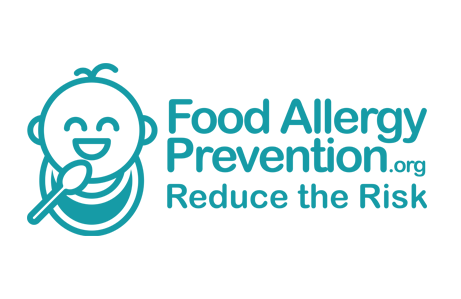Early Introduction of Other Top Allergens

The LEAP study provides clear evidence that introducing peanut foods early can lower the odds of developing peanut allergy for many babies at high risk for the disease. But what about foods other than peanut? For other common food allergens, the benefits of early introduction aren’t as clear-cut. Research studies show that introducing allergenic foods early doesn’t put a baby at greater risk for food allergy. In an exciting new development, evidence is building that early introduction of egg may prevent at least some high-risk babies from developing egg allergy.
Enquiring About Tolerance (EAT)
Funded by the UK’s Food Standards Agency and published in 2016, the Enquiring About Tolerance (EAT) study randomly assigned 1,300 breastfed infants to one of two treatment groups at age 3 months. One group was introduced to a sequence of six allergenic foods (milk, peanut, egg, sesame, fish and wheat), while the other group continued breastfeeding exclusively until age 6 months. The children were then observed over time to see whether the two different approaches to early feeding had resulted in different results.
The EAT study found that rates of allergy to the six foods weren’t significantly different when the early introduction group and the exclusively breastfed group were compared at ages 1 and 3. This showed that early introduction of allergenic foods did not increase a baby’s risk for food allergy.
Additional Findings from the EAT Study
In 2019, a new analysis of EAT study data showed that early introduction of allergenic foods did protect against food allergy for some children at high risk. Early introduction and exclusive breastfeeding were compared in babies who were already sensitized at age 3 months to one or more of the six foods featured in the study (milk, peanut, egg, sesame, fish and wheat). Being sensitized meant that these babies were at higher risk of developing a food allergy because blood tests showed they were already making allergy-related IgE antibodies to at least one of the six foods. IgE antibodies play a key role in allergic reactions, but it’s possible to have IgE antibodies against a food protein and still not react to eating the food. Researchers made several new observations:
- Compared to exclusive breastfeeding, early food introduction made babies sensitized to one or more of the six foods less likely to develop an allergy to one or more of those foods.
- Early introduction of peanut lowered the risk of developing peanut allergy in babies sensitized to peanut. This finding is consistent with the LEAP study.
- Notably, early introduction of egg lowered the risk of developing egg allergy in babies sensitized to egg. Early introduction of foods including egg also provided protection against egg allergy in babies with moderate or severe eczema at age 3 months.
- For babies who were not sensitized to any of the six foods at the start of the study, the risk of developing allergy to one or more of the foods was similar in both the early introduction and exclusive breastfeeding groups.
In the past, evidence for early egg introduction to protect against egg allergy has been weaker than evidence for early peanut introduction to protect against peanut allergy. In part, this has reflected differences in experimental approach, because raw egg tends to be more allergenic that baked egg. These new findings from the EAT study indicate that early introduction of egg can provide protection against egg allergy for at least some children at high risk for developing egg allergy. Guidance on early egg introduction is likely to evolve as more evidence becomes available.

foodallergyprevention.org
Increasing awareness and adoption of food allergy prevention best practices by clinicians, patients, and caregivers in order to mitigate the increasing prevalence of food allergies in Americans.


